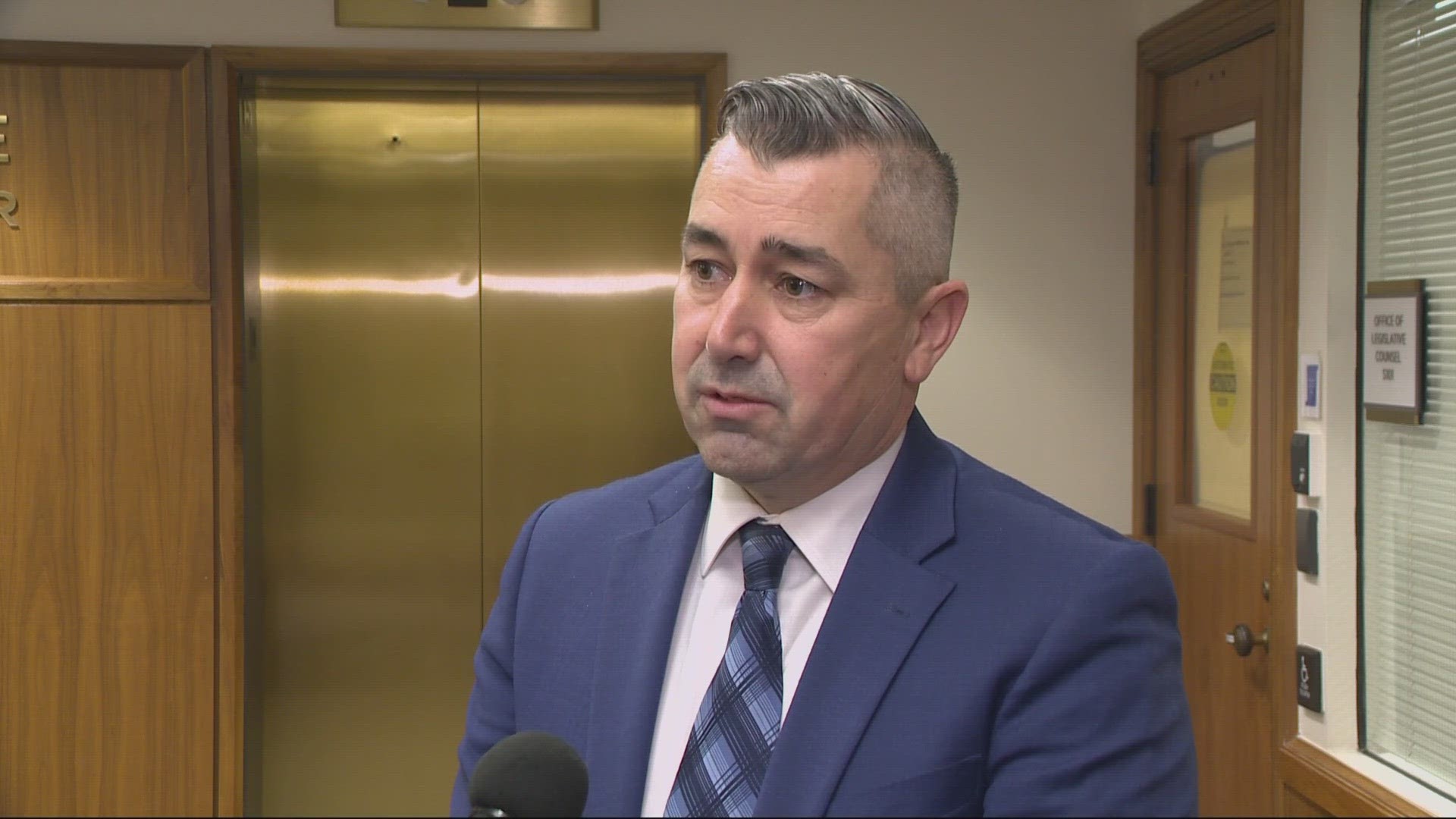SALEM, Ore. — It was standing room only in Hearing Room A at the Oregon State Capitol on Wednesday. Dozens of people lined up to offer criticism or praise for the effects of Measure 110. They voiced their feelings before the Joint Committee on Addiction and Community Safety as they pertained to three new bills designed to change the impacts of Measure 110.
The voter-approved measure took effect in 2021, making possession of small amounts of drugs a Class E Violation. That’s punishable by a $100, a ticket that could be waived if the violator contacts a substance use helpline.
Since Measure 110 took effect, critics have blamed the law for an increase in public drug use and little accountability. Others who support it have said it's working if only to keep addicts out of jail and on a path toward treatment. But the question remains of whether or not that’s actually happening at a high enough level.
House Bill 4036 and Senate Bill 1555 are both Republican-led legislative efforts. They would bump possession of a controlled substance up to a Class A Misdemeanor, punishable by up to a year in prison, a $6,250 fine, or both. There's also House Bill 4002, a Democratic-led effort. It would bump possession of a controlled substance up to a Class C Misdemeanor, a crime punishable by up to 30 days in jail, a $1,250 fine, or both.
“These bills would reverse course on Oregonian's bold, compassionate decision to provide healthcare to people struggling with addiction rather than responding with arrest and incarceration,” testified Emily Holly.
Others who offered testimony, including Michele Stroh, strongly disagreed with how Measure 110 has impacted Oregon’s drug crisis. She lost her son, Keaton, to a fentanyl overdose in 2020.
“The culture measure 110 has created regarding drug use is live and let live, but in Keaton and many others, Measure 110 meant live and die,” Stroh said. “We are showing the next generation of children that illicit drugs are normal and accepted and they should never be seen that way, ever.”
Multnomah County Deputy District Attorney Nathan Vasquez testified before the joint committee, noting that he believes Measure 110 needs to evolve.
“To be clear, I'm a firm believer in treatment and absolutely we need to have that, but we need to have accountability as well,” Vasquez said. “There is absolutely a place for the criminal justice system and public safety to be involved with this and to connect people to treatment.”
Some testified in favor of keeping Measure 110 intact, saying different approaches through the effort are helping combat street level drug use.
“We're seeing really good results,” said Tera Hurst, executive director for Health Justice Recovery Alliance.
Hurst opposes all three bills and believes that at its core, Measure 110 has the potential to do more with the right resources. After three years as a law, Hurst said its future hinges on public resources.
“I think it depends on if you have true leadership wanting to invest long term into services,” Hurst said. “This is about services. This is about access to care.”
Lawmakers will discuss public testimony over all three bills and determine any possible amendments as they move forward. They plan to discuss the bills again during their next meeting on Monday.

